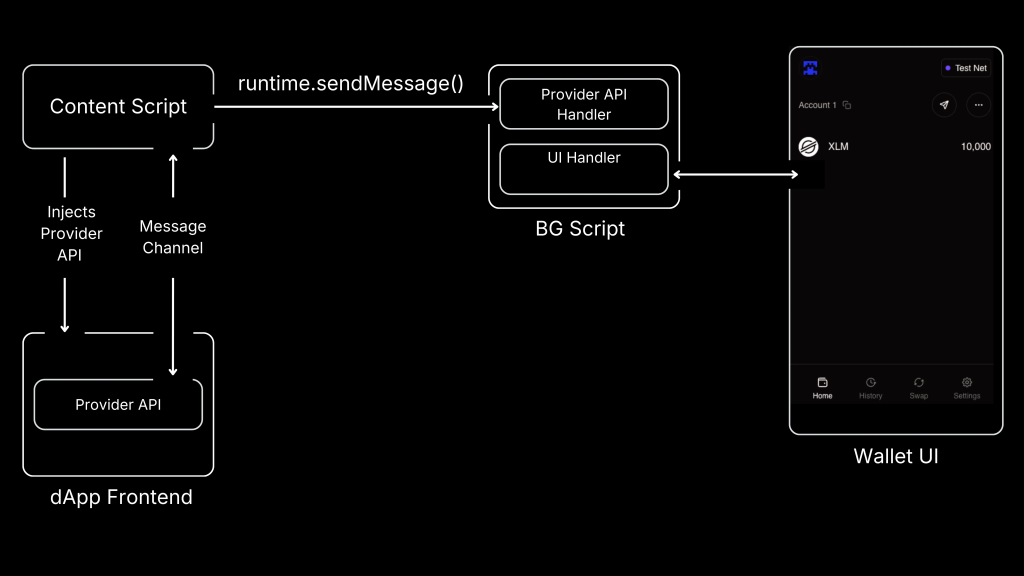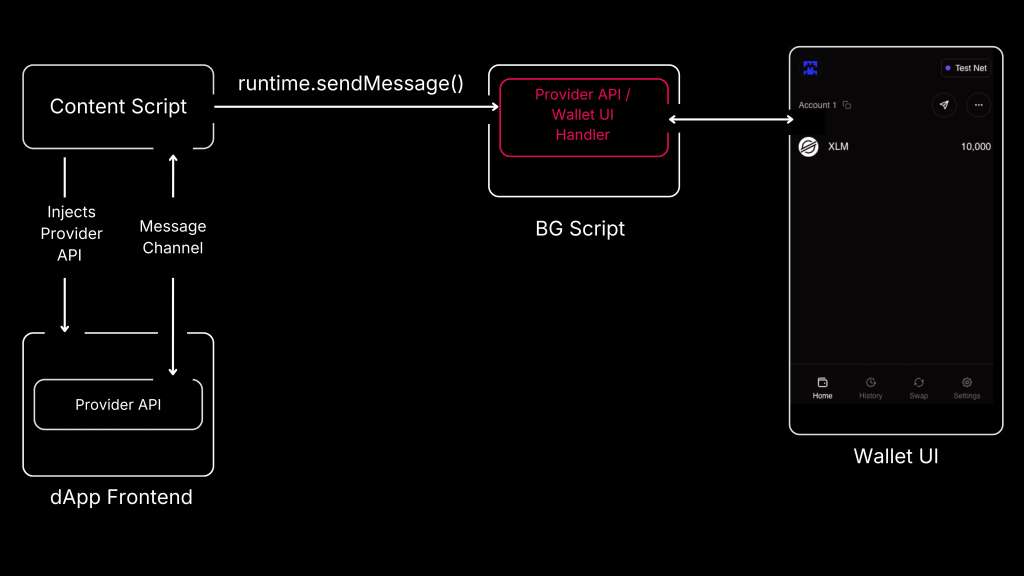Researchers have disclosed a series of alarming vulnerabilities in popular browser-based cryptocurrency wallets that could allow attackers to silently drain user funds, without any phishing, social engineering, or wallet connection approval required.
As per a report by Coinspect, Industry-leading wallets such as Stellar Freighter, Frontier, and Coin98 were found to have flaws that exposed users to complete compromise simply by visiting a malicious website.

These vulnerabilities allow attackers to extract users’ secret recovery phrases or directly execute unauthorized transfers, putting millions of dollars at risk in the rapidly growing decentralized finance (DeFi) ecosystem.

CVE Spotlight
Stellar Freighter (CVE-2023-40580)
In the Stellar Freighter wallet (CVE-2023-40580), researchers discovered that a design flaw in the wallet’s internal message handling allowed crafted messages from a web page to trigger a secret backup display function typically reserved for the user interface.
By exploiting this, an attacker could trick the wallet into revealing the user’s 12-word recovery phrase directly to their own site—no user approval, no interaction, not even a “connect wallet” action necessary.
- Discovery/Disclosure: Reported via HackerOne, with a $20,000 bounty awarded.
- Fix: Patched in version 5.3.1.
Frontier Wallet
The Frontier browser extension leaked the encrypted secret recovery phrase via the Provider API, which was exposed to any website.
Even if the wallet was locked, attackers could exfiltrate the encrypted seed and the wallet address for offline brute-force attacks or targeted phishing.
- Disclosure: November 13, 2024; patched November 22, 2024.
Coin98 Wallet
The Coin98 vulnerability allowed websites to trigger wallet actions by sending messages that mimicked privileged commands (e.g., isDev:true), convincing the wallet’s background script to sign and broadcast unauthorized transactions.
Attackers could thus initiate direct fund transfers to their own addresses, all without user input.
- Disclosure: Reported July 12, 2023 via HackenProof; $1,000 bounty awarded.
What makes these vulnerabilities especially dangerous is the lack of warning or required action.
Victims didn’t need to connect wallets, approve transactions, or even recognize they were at risk: merely visiting a malicious website was enough for attackers to silently gain full control.
Further compounding the risk, attackers could wait until accounts were well-funded before draining them, delaying theft and frustrating forensic investigation.
While patches have been issued, these findings highlight urgent risks as new wallets enter the ecosystem, sometimes lacking mature, open-source code bases or thorough audits. Experts strongly advise users to:
- Ensure their browser wallets are updated to the latest versions
- Use wallet extensions only when actively transacting
- Always verify extension sources and watch announcements for security notices
The vulnerabilities serve as a stark reminder: in Web3, even the most trusted wallet can become a threat vector, often in ways no user would expect.
Find this News Interesting! Follow us on Google News, LinkedIn, & X to Get Instant Updates!



.png
)
